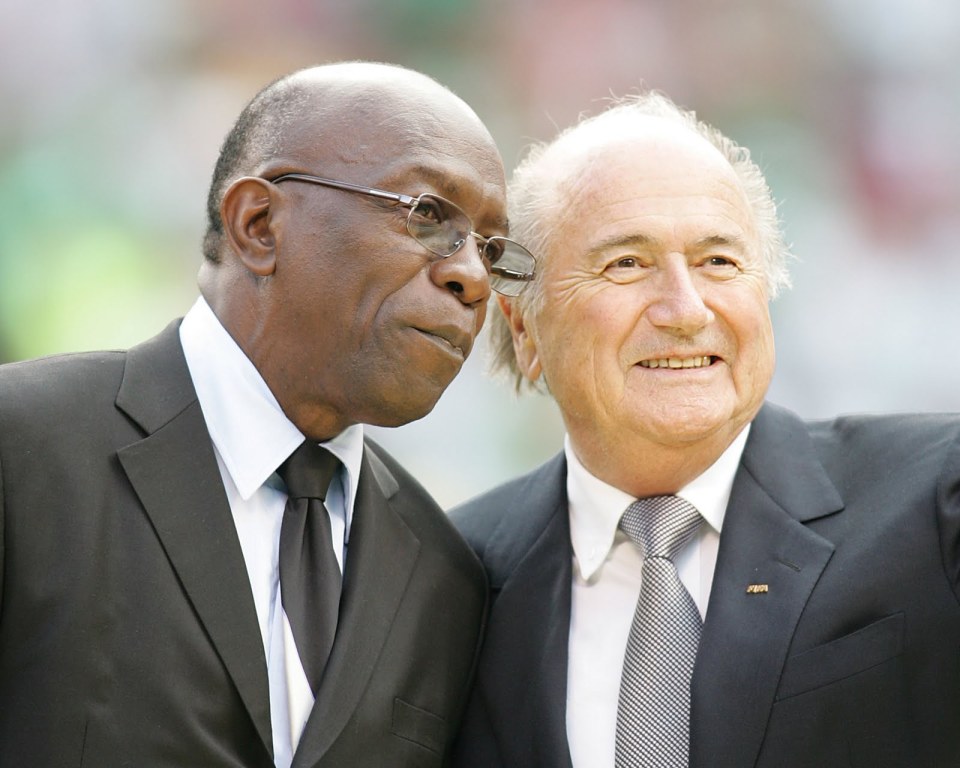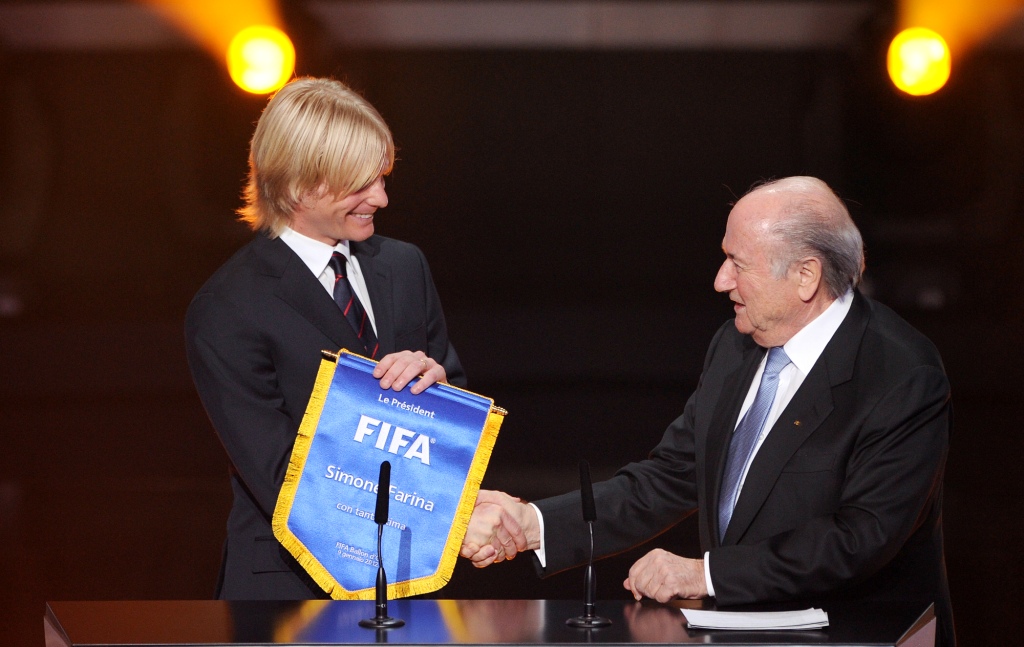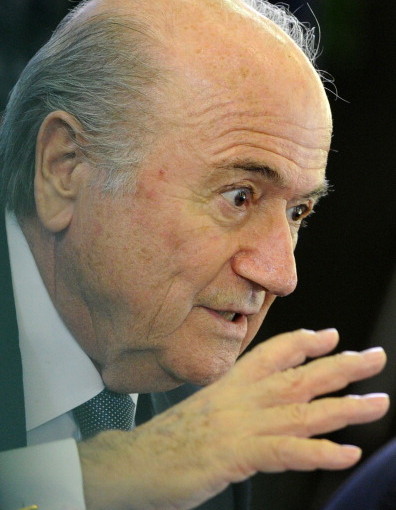By Andrew Warshaw
January 24 – The infamous ISL files naming high-ranking FIFA officials who allegedly took bribes could be released at the end of January according to FIFA President Sepp Blatter (pictured).
Late last year FIFA was ordered by a Swiss court to release documents that could pave the way to finally naming those who are claimed to have taken millions of dollars in kickbacks from World Cup broadcast deals.
Football’s world governing body had previously said that it had been forced to delay publication of the eagerly awaited documentation relating to the collapse of its former marketing partner in 2001, with debts of $300 million (£188 million/€216 million), because of legal objections.
Blatter himself has been accused of deliberately dragging his feet for fear of incriminating colleagues named in the dossier, understood to include Ricardo Teixeira, President of the Brazilian Football Federation (CBF) and controversial head of Brazil 2014; former FIFA President João Havelange; Nicolás Leoz, boss of the South American Football Confederation (CONMEBOL); and Confederation of African Football (CAF) chief Issa Hayatou.
But Blatter insists he is as frustrated as anyone that FIFA has still not been able to release the infamous files.
“I’ve been trying to release this exasperating ISL dossier for a long time,” he said.
“I’d be ready to do that today if only the court would allow it.
“If there are no new legal objections, it could happen at the end of January.”
Blatter admitted he knows much of what the files contain.
“I’m roughly aware of the contents, but I don’t know any of the legal details,” he said.
“But this is a fact: I’ve not received any payments of any sort, as confirmed by the court back in 2010.”
In a wide-ranging interview with Kicker magazine, Blatter also had another dig at the English media, partially blaming them for the vote-rigging scandals that marred the 2018 and 2022 World Cup ballots.
“Investigative journalists in England set traps, and people fell into them,” said Blatter even though FIFA’s own Ethics Committee ultimately banned a number of prominent powerbrokers over corruption charges and Blatter himself is leading FIFA’s current reform programme.
And in what appeared to be another jibe at the English Football Association for attempting to get last June’s FIFA election called off, Blatter added: “Only a tiny minority couldn’t agree with their head.
“I was re-elected with more than 91 per cent of the votes, which is proof of the unity within the football family.”

Turning to former FIFA vice-president Jack Warner’s (pictured left) much-publicised claims that he was assigned World Cup rights by FIFA for a mere $1 (£0.64/€0.77) when Blatter was first elected President in 1998, Blatter responded: “That’s not true.
“We had no influence on the assignment of these rights.
“He acquired them in 1986 from OTI (Organización de Telecomunicaciones Iberoamericanas).
“These stories are passed on unchecked.”
And on the ongoing controversy over Qatar staging the 2022 World Cup in mid-summer, Blatter said time was running out to make any switch to the winter months.
“If there was to be any change, Qatar would have to submit a request to FIFA,” he said.
“There’s been no such request.
“If it was to come, the Executive or Congress would have to decide.
“It would have to happen soon, as we’re in the process of drafting the international calendar from 2014 onwards.
“We can’t draw up a calendar without knowing when the World Cup will be played.”
With FIFA continually under the spotlight for all the wrong reasons, Blatter said it was time to accentuate the positive, a tough ask given the constant drip-drip of corruption allegations emanating from Zurich.
“Unfortunately, in these turbulent times, it’s often the case that people forget the positive things about FIFA,” Blatter said.
“The game can build bridges, and bring people together, especially in countries affected by war.
“Football has been played continuously during the five-year occupation of Iraq.
“Football is played in Afghanistan and in Pakistan of course.
“They’re building up a women’s league in Palestine.
“Even during the revolution in Libya, the national team qualified for the Africa Cup of Nations.”
But he admitted there were still huge problems – not least when it comes to match fixing.

“Football has become a huge commercial machine,” Blatter said.
“And where there’s money involved, you’ll also find gamblers.
“Bringing these gamblers, these rogue players, under control isn’t easy.
“For that, we need honest, exemplary players who act as role models.
“That’s why, during the [recent] gala in Zurich, we called Italian player Simone Farina to the stage and honoured him for his courage in attempting to prevent a match fixing incident, and to uncover the mastermind behind it.
“The Gubbio defender had the courage to refuse €200,000 (£167,400/$260,400) to throw a second division match, and to report the incident.
“If we had more Farinas, FIFA wouldn’t have to liaise with Interpol.”
Blatter insisted once again that FIFA’s four reform Task Forces, together with the new Governance Committee chaired by Swiss anti-corruption expert Professor Mark Pieth, would act independently.
A number of reforms, he says, will be tabled for initial agreement by the FIFA Congress in Budapest in May, to be completed a year later.
Contact the writer of this story at zib.l1745176255labto1745176255ofdlr1745176255owedi1745176255sni@w1745176255ahsra1745176255w.wer1745176255dna1745176255
Related stories
January 2012: Beleaguered Teixeira to appeal against release of ISL documents
January 2012: Teixeira makes himself scarce as FIFA’s Valcke heads to Brazil
December 2011: FIFA ordered to release ISL papers
December 2011: “There is no action required” over Hayatou claims FIFA President
December 2011: Hayatou is “incorruptible” claims former England 2018 bid adviser

